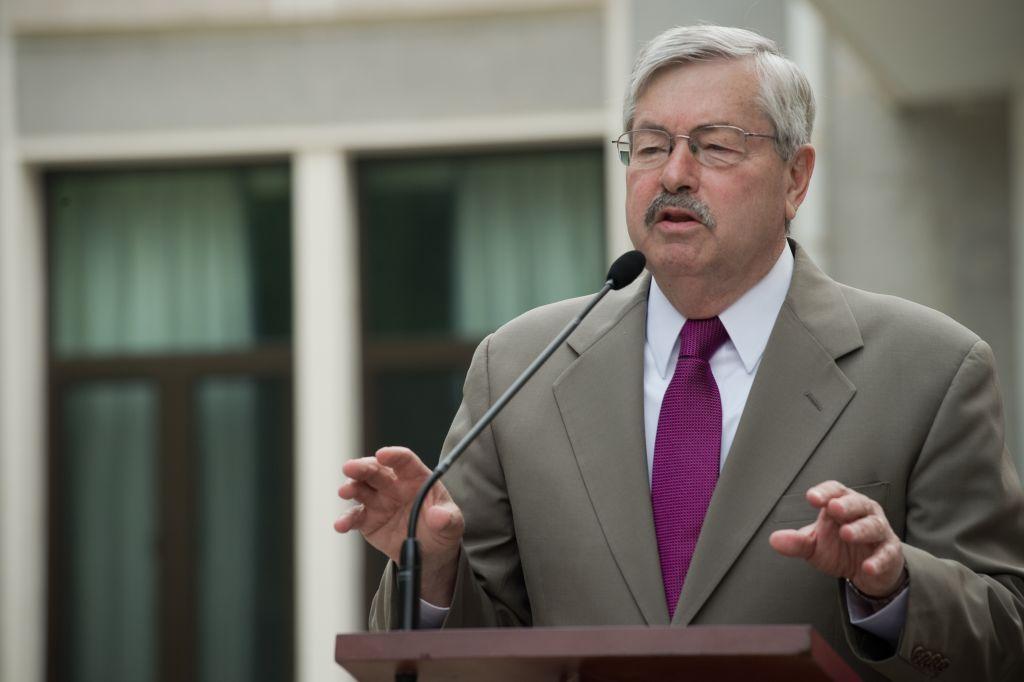U.S. Ambassador to China Terry Branstad expressed U.S. concerns about Beijing’s recent actions to undermine Hong Kong’s autonomy while meeting with China’s vice foreign minister Zheng Zeguang.
The U.S. Embassy in China issued a brief statement on July 16 about the face-to-face talks between Branstad and Zheng a day earlier. According to Chinese state-run media, Zheng had summoned the U.S. Ambassador to lodge a protest against President Donald Trump’s recent actions on Hong Kong policy.





